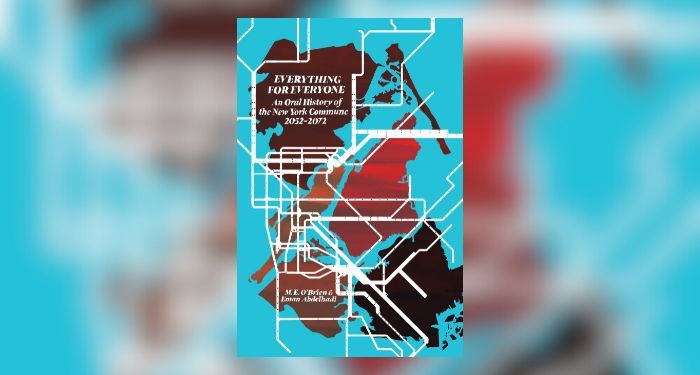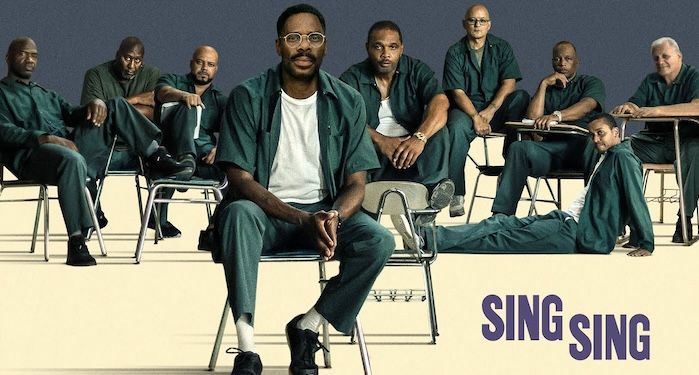Book Censorship News, March 29, 2024

The ways to respond have been outlined in the several years we’ve been covering book banning and censorship here. The long and short: show up and vote — only 18% of my county’s eligible voters even bothered in last week’s election, meaning that fewer than 1 in 5 adults decided the fate of the entire county (I’m in a state where we have some of the easiest access to voting nationwide, so imagine the numbers where barriers purposefully erase voices); show up and use your library; show up by writing everyone who represents you and tell them the value of the library; show up and run for boards; show up and write and speak at board meetings; show up and find as many library supporters as you can to do all of these things and more, regularly. If you work in libraries, you can do all of these things, as well as ensure your collection management policies are airtight; that you are advocating for yourself and not just hoping outside groups do so; use the data to continue emphasizing how trustworthy you are seen in your community — it is leaps and bounds more than the politicians in your community.
Many of the below do not operate in a vacuum. I’ve teased them out for ease of understanding the various methods of entry. This is also not exhaustive. Every day, people who are determined to kill institutions of democracy find new ways to chip away at it.
Destruction From Within By Leaders and/or Library Boards
This happens primarily in two ways. First, “community members” — quotes here because frequently, it’s people who don’t live in the community nor have any attachment to it — show up to board meetings and perform their grievances to the board. In some cases, people perform an out-of-context passage from a book, which they might conveniently pick up from BookLooks. Those individuals may or may not sport their Moms For Liberty/No Left Turn/Whatever Other Group They’re Affiliated With apparel to showcase their affiliation.
In public libraries, those complainants might want the books to be banned — sorry, removed — but what we’re seeing are more pushes to move those books around because, as the performer will note, it’s a public library, and while maybe those books can be there, they shouldn’t be easily accessible to their audiences (see the earlier note about voting — sure, it’s a right, but it should come with some hoops to jump through!). Even though they should, by virtue of their role as board members, individuals on those boards may not actually know what’s happening regionally or nationally. They may be unaware that these performances are not new or novel. They’re repeats of what’s happening elsewhere, recorded and shared across social media to encourage replication.
The second destruction from within by the library board happens when an individual or group is eager to take over a library and runs for or applies for the role and gets it. Public library boards might be elected positions, appointed, or a mix of both elected and appointed. But because of how few people show up for elections when these positions are on the ballot, it is easy for someone with an axe to grind to get on the board and do just that. Bring on a few similarly-minded individuals, and within no time, the public library as it once was — open and welcoming to all — becomes a shell of itself.
Some examples of destruction from within by boards include what happened at Niles-Maine Public Library (IL), the pushing by the board to remove the entire “young adult” designation at the Flathead County Public Library (MT, formerly the ImagineIF library), banning book displays on “divisive” topics at Lafayette Parish Public Library (LA, and this is after years of other board decisions that irrevocably harmed the library), the moving of books about transgender children out of the children’s and teens areas of the library and into a “parenting” section at the Greenville County Public Library (SC), and how the takeover at Hamilton East Public Library (IL) of the board led to removing and reviewing every single title in the teen section at the cost of tens of thousands of dollars to taxpayers. Phillips Public Library (WI) has dealt with over two years of community member complaints over a handful of LGBTQ+ titles, which led to stickering those books inside their covers in order to quietly warn parents about the content.
Corpus Christi Public Library (TX) saw appointments of Moms For Liberty and County Citizens Defending Freedom to their board, and while social media lit up recently upon learning that League City Public Library (also TX) would restrict access to those who aren’t from the community, that same concern did not emerge when just months earlier the board became a tool of right-wing nonsense and was eager to appoint book banners to its material review committee.
Another “from within” story that takes a slight twist on the board-as-actor is from Metropolis, Illinois. This time, it was the library director — who has been in the position for two years — connected to a far-right church in the community. She’d been removing books from the collection for years, and the new law in Illinois, which required inclusion of the Library Bill of Rights in policy to access state funding, Guess what led to a series of nonsense meetings, op-eds and local radio programming, and rumors about how drag queen storytimes would take over the public library? Turns out that the director was purposefully lying to the community she was supposed to be serving.
City/County Overreach Into Public Libraries
Sometimes destruction from the inside via library boards is aided in part by city or county politics and sometimes, it’s those city or county politics that overtake the board and library altogether. We’ve seen this be especially effective via the “Clean Up [name of library/city]” book banning groups, first at the Samuels Public Library (VA) and now at the Prattville Public Library (AL). In both of these instances, the far-right Christian groups have gone to sympathetic city or county commissioners to plead their cases for the “clean up” of these public libraries. “Clean up” here is a euphemism for eradicating any books that aren’t Christian, white, heterosexual, and cisgender focused.
For “Clean Up Prattville,” the library board directed the library to remove LGBTQ+ books and was responsible for firing the director, but the decision wasn’t in a vacuum. State pressure pushed downward, as the governor has had a target on Prattville from the start. Why? Groups like “Clean Up Prattville” who manufactured the crisis. For “Clean Up Samuels,” it was a group going directly to the county board of supervisors who oversaw funding of the library.
Because city and county commissions have closer access to the legal system, their influence can be effective — even if it’s by sheer intimidation. In 2021, the Llano County, Texas, Commissioners Court demanded that the public library evaluate every children’s book on their shelves to ensure it was appropriate. This led not only to the library being shut down for several days to do the work but it led to the firing of one of the library’s head librarians who refused to remove LGBTQ+ books from shelves (she just filed a lawsuit over her dismissal).
A proposal in Montgomery County, Texas, this week from the county commissioners court is the next step in a long line of movements by the county into the public library system that began sometime last summer. The latest proposal entirely removes librarians from the process when it comes to materials challenges. In other words, no actual professionals would sit on materials review panels; their expertise wouldn’t be needed. This is the county complicit in not only devaluing the professionals but also eager to do so in the name of “protecting the kids.”
Then, Sumner County, Tennessee. Thanks to County Commissioner Jeremy Mansfield, the traditional methods of appointing library board members were upended. Several new faces were appointed within a couple of months as Mansfield leaned into his affiliation with a local far-right group. This shift in the library board meant that a director was fired following a Kirk Cameron event, and it helped lead to the decision to restrict access to entire sections of the public libraries to those under the age of 18.
This isn’t the only library dealing with anything of the sort. Just last month, Kenosha County (WI) voted down a proposal by County Board Supervisor Tim Stocker which would restrict access to any “adult” books in county-funded public libraries by those under 18. Antigo Public Library, also in Wisconsin, faces closure due to a majority county-appointed board eager to cut the institution’s funding. After a series of closed-session meetings between city leadership and specific members of the library’s board, word leaked that more changes were coming to the library board. If those changes were to come, seven of the nine board members would be in their first term and five in their first — this kind of restructuring of the board cycles puts the library in danger of partisan politics fully governing the institution.
November marked a significant victory in the attempts to put Pella Public Library (IA) under the control of its city administration. This would have meant eradication of the board, which operated independently of the government, and it would have given the power of the library over to small, vocal, influential people, as opposed to the community as a whole. The spending on this particular election was especially important to understand. A lot of money was being spent to help close down the library. Even if the library itself kept its doors open, moving the oversight would have made it subject to the whims of the government and not an independent board (and we know even those independent boards are themselves subject to political influence, but they have recourse for their actions in ways that movement of the library from one department to another here would not).
Currently, in Carroll County, Maryland, the public library is being attacked by a county commissioner, Kenneth Kiler, who isn’t bothering to learn how libraries work at all but certainly has opinions about them. Kiler is in the bag with local Moms For Liberty, who are eager to dismantle the library, and he’s also spouted nonsense about the library director being affiliated with the Maryland Library Association, which he believes is anti-Carroll County. Kiler is big mad about the possible Freedom to Read Act being legislated because it means books he and his friends don’t like can’t just be pulled from public library shelves.
When the government utilizes any of the tactics outlined above, that’s called fascism. Unfortunately, it’s not just creeping anymore. It’s so pervasive that we’re hardly even noticing how widespread it is in public libraries alone.
Privatization of Public Libraries
Turning to private corporations to run public libraries is not a new phenomenon. It’s extremely rare, but it happened several times in the past. One of the biggest privatization groups, Library Systems & Services (LS&S), is, as of 2023, the fifth largest library system in the United States, operating 80 libraries. Privatizing public libraries involves ending a structure where the institution is funded by taxpayer allocation, but instead, a company is paid a set amount of money per year to run it instead. The public library becomes a private business, and in the end, the library loses its local flavor, its uniqueness, and it divorces itself from being an institution of, for, and by its community. Privatizing libraries does precisely the opposite of what book banners demand: it removes local control.
In an era of censorship, though, turning to privatization is appealing for cities that are fighting an institution that won’t just give in to their demands. This happened in Huntsville, Texas, in December 2022, when the library refused to give up having or displaying LGBTQ+ books (indeed, this story involved a local police officer “reviewing” books at the circulation desk). The demands by the city to the library led to a hostile situation between the two, and so the city elected to sell the library to LS&S. It made the library an unsafe place for not only queer books but queer people, including its own employees.
Huntington Beach, California, is considering a similar solution to their public libraries woes as well. Those woes stem not from the library but from the city council, which demanded that any “sexually explicit” books accessible to children be relocated in the library last summer (to say it was disheartening that people seemed only to get loud about this story in February when photos hit social media is an understatement — this news has been out there for months and one of the board members has distributed utterly disgusting propaganda about LGBTQ+ people). The moving of books led to more and more people showing up to city meetings in protest, and despite the outcry not to do so and currently circulating petitions, the city is going ahead and seeking bids to privatize the library.
It is not cheaper to outsource library services. Indeed, cities that have gone under an LS&S contract have elected not to re-up them because it is less pricey to keep local control. But privatization right now isn’t about cost.
It’s about ramming a particular agenda and not needing to answer for it when your community comes calling.
Other Public Library Attacks
The above do not operate in isolation, as noted previously. Privatization, for example, emerges from city/county-level decisions. City/county level politics have a role in local board politics. They’re all connected.
There are several other ways public libraries are being destabilized and dismantled right now, too. They play alongside the above. Among them are ending affiliation with professional organizations like the American Library Association. This can happen at the library level, the county level, or even the state level, depending on policy and legislation. In Louisiana this week, for example, a State Representative just suggested making it a punishable crime for public funds to be used for American Library Association affiliation — that would deeply harm not only public librarians who get professional development and growth from the organization but it would harm the libraries themselves, making them more readily susceptible to influence by political groups. They’d be more susceptible to privatization as well since there is no one to which the library can turn to get the support they might need when their city says it’s time for them to be sold off.
Legal loopholes have been a boon for public library critics, too. An entire library in rural Washington, Dayton Memorial, nearly shut down when some rural residents were angry about LGBTQ+ books in its collection. When they didn’t get their way, and the books were not just removed from shelves, they attempted to get on the ballot a measure that would close the library altogether. Fortunately for Dayton Memorial, the library won a lawsuit to keep the vote from happening and the state sewed up the legal loophole this legislative session to ensure this could not happen again.
Though not a loophole, legally electing not to fund a library has been particularly effective for some communities. Although Jamestown, Michigan’s, Patmos Library was ultimately funded in its third effort at the polls, it was a tiny but vocal minority that managed to push the library to near closure…over the library having on shelf a small number of LGBTQ+ books. Again: when only 18% of a populace who can vote bothers to, that’s fewer than 1 out of 5 adults in a community making decisions that impact the entire community. One out of five people bigoted enough or influenced by bigots enough to shut down a public library over 90 LGBTQ+ books — a whopping .015% of the entire collection — should be a wake-up call.
And then there’s stochastic terrorism via the rash and rise of public library bomb threats. They hit Illinois. Then they hit Illinois again. Then they hit Minnesota, Colorado, and other places across the country. The goal of these is pretty simple: incite fear and create a culture where centers of democracy are seen as unsafe. As targets. If people are too afraid to go to the library, then why do we need the library at all? We can funnel that money elsewhere because, well, people can just buy the books on Amazon or at the bookstore, can’t they?
Perhaps they’re right.
It’s not a book ban if we just shut the entire library down.
Book Censorship News: March 29, 2024
- A West Texas school board — Midland Independent School District — received death threats from a person angry about certain books in campus libraries, which they called “porn and other degenerate filth.” Aren’t we glad this kind of behavior is what’s being upheld as moral and right?
- Some pastors and members of the Salvation Army in Alpena, Michigan, believe they should be able to decide what is in their public library.
- Fresno County, California, opened up applications for residents to become part of the book review committee that will determine the standards by which public library materials must meet (or else they’ll be removed). I wish this sentence were hyperbole.
- I cannot access this article due to a paywall, but Iron River Public Library (WI) continues to have to change its policies over LGBTQ+ — sorry, “sexually explicit” — books in the children’s areas.
- The Haters was banned in Lake Travis Independent School District (TX).
- A bomb threat, suspicious packages, and other dangers led to the cancellation of a drag story hour in Lancaster, Pennsylvania. Again, upstanding citizens here.
- The above-linked bomb threat at Lancaster’s public library led to the Quarryville Public Library canceling an upcoming book event. This event was meant to be a fundraiser to help keep the library viable; as you might recall, this library had one of its townships pull funding for it because they hate gay books.
- 87 people applied to be on the library board in Washoe County, Nevada. Fortunately, it’s a former school librarian who sees the library as being under attack who was appointed.
- Pretending you care about book bans by challenging the Bible is the antithesis of caring about book bans. These stories are exhausting and a waste of energy. You don’t solve book bans by banning books, even books you think “send a message.” Story from Hanover County Schools (VA).
- Pickens County Library Board (SC) will not move the book Drama from its appropriate spot in the juvenile collection.
- Enka High School (NC) removed Tricks from shelves in the library. This gives a rundown of the book challenges and their current status in Buncombe County Schools.
- Because important news is paywalled, here’s a link to a story I can’t read and tell you about related to what public libraries in North Dakota have reacted to their state book ban legislation.
- None of the eight books discussed in New Prairie Schools (IN) were banned last week.
- Three books in the Greenville County library system (SC) will be relocated from the YA and juvenile section into the adult section. This story is [drum roll] paywalled. Here’s an unpaywalled version.
- “Many of the speakers were from area churches who had been advised of the book excerpts through a social media campaign instigated in recent weeks by Position 7 Trustee David Hamilton, who serves as the board secretary. All of the excerpts come from the website of BookLooks, a Florida-based group that provides capsule summaries of books as well as excerpts that it finds objectionable.” It’s Moms for Liberty. CALL IT MOMS FOR LIBERTY. This is in Fort Bend, Texas.
- An update on the change in policy that might make book banning easier in Upper Adams Schools (PA).
- “South Middleton School Board last week voted to remove the web address of a social justice website from a strategic planning document that outlines how district counseling services intend to address student needs. Board members voted 7-2 to remove ‘teachingtolerance.org‘ as a resource from curriculum action plans for the first and second grades under a broader document known as the K-12 School Guidance 339 Plan.” Teaching tolerance is not acceptable in this Pennsylvania school….even as a resource.
- Frederick County Public Schools (VA) school board president has a 100-page list of books he calls “nothing short of grooming” he’s eager to get pulled from the district.
- The Matanuska-Susitna Borough Assembly (AK) wants to create a “citizen’s committee” to review book challenges in public libraries.
- Speaking of Mat-Su, the school district there is now banning Call Me By Your Name and Verity.
- The Flathead County Library Board (MT, formerly ImagineIF Libraries) may make a decision this week on whether or not to eliminate their young adult collections altogether.
- Laurel Public Schools (MT) will not return three books to school shelves. Banned permanently are The Lesbiana’s Guide to Catholic School, A Million Quiet Revolutions, and Assassination Classroom, Book 4.
- In the Greeley, Colorado, school district, The God of Small Things will not be banned. Read this story if for no reason other than how convoluted and long the process is. 150 people began begging to get the book banned in December 2022. The review committee, consisting of NINETEEN PEOPLE, didn’t begin the process until November 2023. The decision came this week.
- Most Alabamans who’ve left public comments about the draconian new library code proposals in the state are not excited about them. Remember this when the laws pass and the governor didn’t listen to the people.
- This is a good story. In 2018, Heather Ann Thompson’s Blood in the Water was banned from Illinois prisons. She sued the state and the lawsuit was just settled in her favor. Her publisher sent a copy of that book to every prison in the state.






